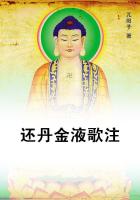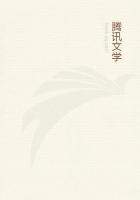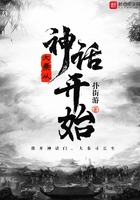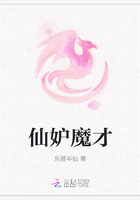Then the Simurgh showed unto Rustem the way he should follow, and Rustem rode after her, and they halted not until they were come unto the sea-coast. And the Simurgh led him into a garden wherein grew a tamarisk, tall and strong, and the roots thereof were in the ground, but the branches pierced even unto the sky. Then the bird of God bade Rustem break from the tree a branch that was long and slender, and fashion it into an arrow, and she said-"Only through his eyes can Isfendiyar be wounded. If, therefore, thou wouldst slay him, direct this arrow unto his forehead, and verily it shall not miss its aim."
Then she exhorted him once more that he bring this matter to a good end, and she led him on the path of return unto Zaboulistan, and when he was come there she blessed him and departed from out his sight.
Now when the morning was come, Rustem came unto the camp of Isfendiyar, and he was mounted upon Rakush his steed. And Isfendiyar slumbered, for he thought that of a surety Rustem was perished of his wounds.
Then Rustem lifted up his voice, and cried-"O man, eager to fight, wherefore slumberest thou when Rustem standeth before thee?"
Now Isfendiyar, when he heard his voice and saw that it was truly Rustem that stood before him, was amazed, and he said unto his nobles-"This is the deed of Zal the sorcerer."
But unto Rustem he cried, "Make ready for combat; for this day thou shalt not escape my might. May thy name perish from off the earth."
Then Rustem spake, saying-"I am not come forth to battle, but to treaty. Turn aside thine heart from evil, and root out this enmity. Make not, I pray thee, thy soul to be a dwelling-place for Deevs. And suffer that I recall unto thee the deeds I have done for Iran, and the list thereof is long. And feast this day within my house, and let us ride forth together unto the courts of the Shah, that I may make my peace with Gushtasp thy father."
But Isfendiyar was angered at these words, and he said-"Wilt thou never cease from speaking? Thou exhortest me to quit the paths of God, for I do wrong when I obey not the voice of my father.
Choose, therefore, betwixt chains and the combat."
When Isfendiyar had so spoken, Rustem knew that his speech was of no avail. So he sighed and made ready for combat; and he took forth the arrow that was given to him of the Simurgh, and he let it fly towards his enemy. And it pierced the eye of the young King, and he fell upon the mane of his steed, and his blood reddened the field of battle. Then Rustem said unto him-"The bitter harvest thou hast sown hath borne fruit."
Now Isfendiyar swooned in his agony and fell upon the ground. And there came out to him his brother and Bahman, his son; and they wailed when they beheld how his plight was evil. But when he was come unto himself he called after Rustem, and the Pehliva got him down from Rakush and came unto where he lay, and knelt beside him. And Isfendiyar said-"My life ebbeth unto the close, wherefore I would confide unto thee my wishes. And thou shalt behold how greatly I honour thee, for it is not thou that hast brought me unto death, but Gushtasp, my father; and verily the curse of the prophet shall fall upon his head, for thou wert but the instrument of Fate. And listen now unto the words that I shall speak, for it is not given unto me to say many- I desire that thou take unto thyself Bahman, my son, and that thou rear him in the land of Zaboulistan, and that thou teach him the arts of war and of the banquet. And when the hour of Gushtasp shall be come, I charge thee that thou put Bahman in his place, and aid him with thy counsels that he may be upright in the sight of men."
And Rustem sware unto him that it should be done at his desire. Then Isfendiyar made him ready to depart, and he spake words of comfort unto his son, and he sent greetings unto his mother and to his wives that were in Iran. And he made them say unto his father that hence-forward he need not fear him beside the throne; and he cursed the name of Gushtasp, and he said that the Shah had done that which was worthy of his black soul. And he bade them speak before the throne and say-"We shall meet again before the judge, and we shall speak, and listen to His decree."
Then he said unto Rustem, "Thou hast done this deed by the arts of magic."
And Rustem said, "It is true, for thou wouldst not listen unto my voice, and I could not bend my spirit unto chains."
And Isfendiyar said, "I am not angered against thee; thou hast done that thou couldst not alter, for it was written in the stars, and surely that which is written in the stars is accomplished."
Then Rustem said, "God is my witness that I strove to turn thee from thy resolve."
And Isfendiyar said, "It is known unto me." And when he had thus spoken he sighed, and the sun of that King was set. And there was great lamentation for him in the army, and Rustem, too, bewailed the hero that was fallen, and he prayed God for his soul. And he said-"May thine enemies reap that which they have sown."
Then Rustem made ready for Isfendiyar a coffin of iron, and he caused it to be lined with silken stuffs, and he laid therein the body of the young King. And it was placed upon the back of a dromedary and forty others followed in its wake, and all the army of Isfendiyar came after them, clad in robes of mourning. And Bashuntan marched at the head of the train, and he led the horse of Isfendiyar, and its saddle was reversed, and its mane and its tail were shorn. And from its sides hung the armour of the young King. And weeping resounded through the ranks, and with sorrow did the army return unto Iran.
But Rustem remained in Zaboulistan, and he kept beside him Bahman, the son of Isfendiyar.
Now when Gushtasp learned the tidings of woe, he was bowed down to the earth with sorrow, and remorse came upon him and he strewed dust upon his head and he humbled himself before God. And men came before him and reproached him with that which he had done unto Isfendiyar, and he knew not how he should answer them. And Bashuntan came in and saluted him not, but upbraided him with his vile deeds. And he said-"Neither the Simurgh, nor Rustem, nor Zal have made an end of Isfendiyar, but only thou, for thou alone hast caused him to perish."
And for the space of one year men ceased not to lament for Isfendiyar, and for many years were tears shed for that arrow. And men cried continually, "The glory of Iran hath been laid low, and it is at the hands of her Shah that it hath been done."
But Bahman grew up in the courts of Rustem, and the Pehliva guarded him like to a son.


